Daisy Academy Montessori Preschool & Kindergarten 8886 Hudson St, Vancouver, BC
CURRICULUM
Daisy Academy is a Vancouver Montessori Preschool & Kindergarten that offers an authentic traditional Montessori program.
Our program at the Daisy Academy is based on the philosophy of Dr. Maria Montessori, an Italian educator and physician, who revolutionized early childhood education by advocating that children be allowed the freedom to explore and develop their own creative potential through a wealth of self-teaching materials.
Our primary goal is to help each child reach full potential in all areas of life.
It is most beneficial to the child to start exploring the Montessori environment at the age of 3 and continue till the age of 5, at which point all the previous experiences come together and you can really see the growth of the child.
When the child first comes to the Montessori classroom he starts his journey in the area called practical life then the child proceeds to the sensorial area, math area, language area and finally ends his journey in the area called culture studies.
Click on the names below to learn more about all the areas of study.
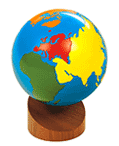
MATH
Children have an innate mathematical ability. The Montessori program supports this ability in the early stages of its development by introducing concepts of math by manipulating concrete materials. The children learn how to develop quantity through the use of tangible objects that represent abstract ideas. Concepts are presented in a very concrete way so that children are not only able to count, but skip count, square numbers and work with numbers in the thousands. In the Montessori environment math is the most popular subject inspiring enthusiasm, interest and concentration. Through sensorial experiences and indirect preparation, the child measures, compares and analyses.
PRACTICAL LIFE
The practical life area lays the foundation for all other work to be done in the classroom. The activities are everyday tasks that a child needs to learn to master the care of self and care of the environment. Such activities include pouring, sweeping and tying, as well as grace and courtesy. The activities are presented to the child in such a way that concentration, coordination, independence and order are developed. The materials in the practical life area, are child sized, real utensils that one would find in the average household kitchen.
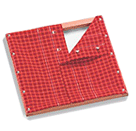
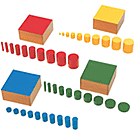
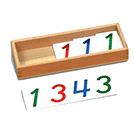
LANGUAGE
Montessori language curriculum is an integrated approach that combines phonetics and the whole language. Through the materials the child becomes familiar with sounds and symbols and begins to make the transition to putting sounds together to make his or her own words. Sandpaper letters, metal insets for shape tracing and moveable alphabet letters all aid the child in developing the muscular control needed to write. Enhancing awareness of what is heard, writing exercises, pre-reading work and finally early reading activities are part of every Montessori child’s progression. The language program is seen as a preparation for more formal learning at the elementary level.
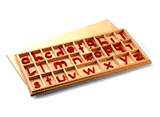
CULTURE STUDIES
The topic of Culture Studies integrates and emphasizes a region or population’s geography, history, music, art, etc. The children study different areas of the world, and experience concrete examples of that area’s language, literature, dress, food, artwork and music. This increasingly important area introduces the child to our planet’s great diversity of people. The child is also introduced to variety of hands-on activities that include biology, botany, zoology, and physical science.
SENSORIAL
This curriculum area contains Montessori specific materials that help children refine their experience of sight, sound, touch, taste and smell. The child learns to discriminate order and classify sensory impressions in relation to size, shape, color, sound, texture, and smell. Sensory experience with the Montessori materials are the child’s first step toward understanding the abstract concepts they represent.